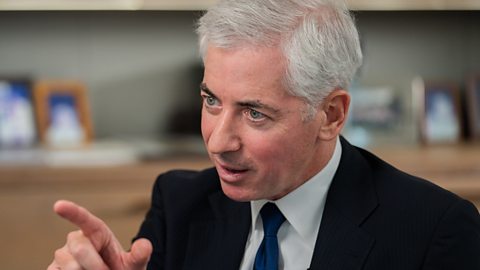By Elizabeth BennettFeatures correspondent

 Getty Images
Getty ImagesDiversity, equity and inclusion policies have become the norm at many companies. As some notable corporate leaders reject the approach, is a DEI backlash brewing?
Elon Musk used his social media platform X, formerly Twitter, on 3 January to tell his 168 million followers that diversity, equity and inclusion (DEI) was “just another word for racism”. Musk added his comments in a retweet of American hedge-fund manager Bill Ackman, who had posted a long criticism of DEI policies, following his successful calls for the resignation of Claudine Gay, Harvard University’s first black and female president.
In the same week, Chip Wilson, founder of activewear brand Lululemon, made headlines in a Forbes profile when he spoke out about the “whole diversity and inclusion thing”. The former CEO (Wilson left the company in 2013 but still remains a major shareholder), criticised Lululemon for wanting to be “everything to everybody”, and called the brand’s inclusive advertising imagery “unhealthy”, “sickly” and “not inspirational”.
For the past several decades, corporate DEI policies have become an increasing priority, embraced by leaders of major businesses. Katleen De Stobbeleir, professor of leadership at Vlerick Business School, Belgium, says DEI has been a prominent theme since the 1960s, but the focus has amplified in the past decade. “It used to be a ‘nice to have’, and something for the more advanced companies. But today it has become a qualifying minimum and a topic that has received more attention from the C-suite.”
Yet some of the same kinds of high-profile leaders who embraced the inclusive policies are now publicly critical of them.

 Alamy
AlamySankalp Chaturvedi, professor of organisational behaviour and leadership, and associate dean of equity, diversity and inclusion at London’s Imperial College Business School, says extensive research has shown “when gender, ethnicity or any form of the diversity are on the table, quality of discussions and decision-making is better, creativity is improved and the performance of the organisation and its culture is stronger”.
Yet despite this, these programmes are increasingly landing in corporate crosshairs.
Chaturvedi says the current public pushback is not entirely new, but has accelerated post-pandemic, amid a turbulent economic and political landscape. “This has caused individuals to focus inwards and on self-preservation, which leads to polarisation,” he says. “There are higher chances of misinformation, which further stretch or breed these uncertainties.” Chaturvedi believes the climate that’s breeding these more extreme viewpoints is here to stay.
While the arguments of Musk and Wilson – business leaders who have significant platforms – might represent the extreme end of the pushback, De Stobbeleir says criticism of DEI policies is more widespread than one might think.
“There is certainly a group of leaders out there that feels that the focus on DEI has gone too far,” she says. This criticism often comes due to DEI initiatives not being implemented successfully. “Well-intended DEI policies can have counterproductive effects. For example, quotas can stigmatise some groups if there is no strategy that focuses on inclusion and how to make the quota work.”
While De Stobbeleir says it’s hard to predict the longer-term picture, she doesn’t think this debate is dying down anytime soon.
“It is quite likely that we will see an increased controversy around DEI efforts with clear opponents and proponents,” she says. “This will most likely have a dual effect. Some companies will regress when it comes to DEI, while others will actually seek to up their DEI efforts even more in an attempt to protect the progress that was made.”
However, amid a climate that can sometimes favour extreme viewpoints over nuanced debate, progress in this area may prove difficult. “Only when we can have an honest, neutral and evidence-based dialogue around what works, but also around what does not work, DEI efforts will become more effective,” says De Stobbeleir. “After all, listening to diverse perspectives and learning from these perspectives is what DEI should be all about.”
This post was originally published on this site be sure to check out more of their content







